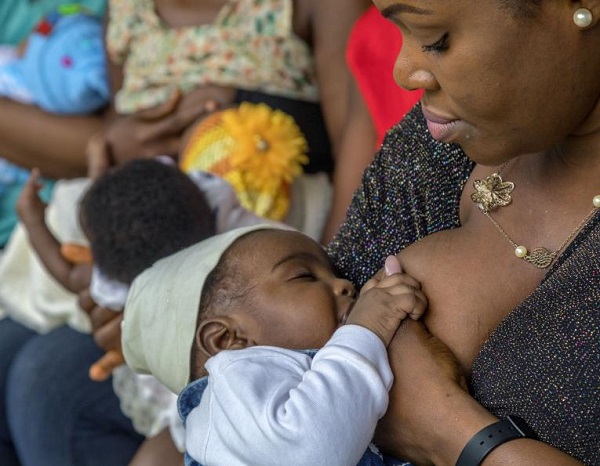
A maternal and public health expert, Dr. Khadijat Adeleye, has underscored the critical importance of sustained support across families, communities, workplaces, health systems and policy levels to improve breastfeeding rates and maternal health in Nigeria.
Adeleye made the remarks during an interview with journalists on Sunday in Abuja, as part of activities marking the 2025 World Breastfeeding Week. The global event, celebrated from August 1 to 7, carries the theme: “Let’s Make Breastfeeding and Work, Work!”
Science Nigeria reports that this year’s theme aims to foster breastfeeding-friendly environments that enable women to breastfeed while balancing their professional responsibilities. It focuses on the need for stronger maternity rights, flexible work arrangements and workplace accommodations that encourage breastfeeding for as long as mothers choose.
Adeleye said that despite its well-documented health benefits, exclusive breastfeeding remains underutilised in Nigeria due to fragmented systems of support. She emphasised that improving breastfeeding outcomes requires more than just individual effort.
“We cannot expect mothers to successfully breastfeed without consistent encouragement and support structures in place,” she said. “Support must be collective, continuous and culturally sensitive.”
According to the 2018 Nigeria Demographic and Health Survey (NDHS), only 29 per cent of Nigerian infants under six months are exclusively breastfed, far below the global target of 50 per cent by 2025 set by the World Health Organisation (WHO).
Adeleye noted that mothers are more likely to initiate and sustain breastfeeding when they receive early guidance from trained health professionals, emotional and practical support from family members, and flexibility at the workplace, such as breastfeeding breaks and designated lactation spaces.
She cited the success of Mother Support Groups in rural areas, particularly in Benue and Kaduna States, where peer counselling and household outreach have significantly improved breastfeeding practices.
To safeguard breastfeeding from being undermined by commercial influences and societal pressures, she urged the Nigerian government to fully implement and enforce the International Code of Marketing of Breast-milk Substitutes. She also called for greater expansion of the Baby-Friendly Hospital Initiative (BFHI), which promotes supportive maternity care environments across health facilities.
Adeleye further appealed to policymakers to prioritise paid maternity leave and breastfeeding-friendly workplace policies, warning that without structural support, both maternal and child health outcomes will remain poor.
“Women should not have to choose between feeding their babies and keeping their jobs,” she said. “Making breastfeeding at work possible makes societies stronger. It builds healthier populations and future workforces.”
She recommended a minimum of 18 weeks and ideally more than six months of paid maternity leave for all women, regardless of job type or sector. She also advocated for flexible return-to-work options, including paid breaks for breastfeeding or milk expression.
Globally, over 500 million working women lack access to essential maternity provisions, and many face limited support upon returning to work. Adeleye said Nigeria’s labour laws must be updated to protect both formal and informal sector workers.
“Inadequate support undermines national health targets. To truly improve maternal and child health, we must ensure every woman can breastfeed with dignity and without penalty,” she concluded.

